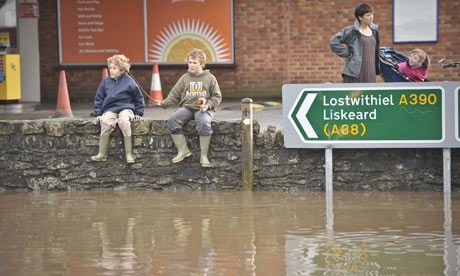WASHINGTON – Economic reports suggest employers are laying off fewer workers, businesses are ordering more computers and appliances, and consumers are spending with more confidence. Combined, the data confirm the economy is improving, and further job gains are expected in 2011.
The economy's outlook is brightening even though hiring has yet to strengthen enough to reduce an unemployment rate near 10 percent.
The number of people applying for unemployment benefits fell last week to a seasonally adjusted 420,000, the Labor Department said Thursday. That's the second-lowest level since July 2008.
Applications have fallen below 425,000 in four of the past five weeks — a significant improvement after hovering most of the year above 450,000.
But the unemployment rate rose in November to 9.8 percent. And employers added only 39,000 net new jobs.
The economy needs to generate more than 200,000 jobs a month consistently to make a dent in the unemployment rate. And applications for unemployment benefits need to fall to 375,000 or below before job gains are likely to get to that level, economists say. Applications peaked during the recession at 651,000 in March 2009.
Even when claims do fall to those levels, the unemployment rate will likely remain high. With 15 million people out of work, it will take years to gain enough jobs to bring unemployment back to a more normal level of around 5.5 percent.
"Don't forget how many people lost their jobs," said Tom Porcelli, an economist at RBC Capital Markets, a reference to the more than 7.3 million laid off during the worst recession since the Great Depression. "The unemployment rate is still going to remain high because of all the people out of work."
As of last month, more than 6.3 million people have been of work for six months or more, making up nearly 42 percent of the unemployed. That's near a record high of 6.76 million set in May.
And those out of work for long periods will find it particularly hard to get back to work, Porcelli said. Employers are less likely to hire the long-term unemployed, in part because many workers' skills deteriorate the longer they are out of work.
Despite months of sluggish hiring, the economy is headed in the right direction. Consumers spent more for the fifth straight month in November, the Commerce Department said. Their incomes rose, too. That was because of stock gains — not pay increases. But any spending increase is a sign of greater confidence in the economy. Affluent shoppers, whose spending carries outsize impact, are spending especially freely.
U.S. businesses, sitting on nearly $2 trillion in cash, are parting with a bit more of it. Companies increased their orders for long-lasting manufactured products, excluding volatile transportation goods, by the sharpest amount in eight months in November. Demand rose for computers, appliances and heavy machinery.
Both consumers and businesses are likely to spend more in the new year now that President Barack Obama has signed a broad package of tax cuts into law. Consumers can bank on a 2 percent cut in payroll taxes. That's another $2,000 a year to a person earning $100,000 a year.
The tax package also gives companies a break if they buy big machinery and other capital goods next year. That will likely spur more business investment, and could lead to more jobs.
"You need someone to operate the new equipment," said Jennifer Lee, an economist at BMO Capital Markets. "Businesses are running their work forces flat out already."
But the economy faces many challenges that could slow the current momentum.
Housing remains a major weight. In November, people bought new homes at a seasonally adjusted annual rate of 290,000 units, the government said. That's less than half the rate that economists consider healthy. And it's barely above the weakest pace in 47 years.
The market for previously owned homes is also struggling. Those are selling at the slowest pace in 13 years.
Meager home sales, along with millions of foreclosures, could dampen home prices further. That would make consumers feel poorer and possibly spend less, restraining economic growth.
Rising oil prices might also hurt the economy. On Thursday, prices rose above $91 a barrel — the highest point in two years. Gas prices have also jumped. That takes money from consumers that they would otherwise use to buy other goods.
And unemployment is likely to remain painfully high for all of next year. Most economists expect it to be near 9 percent by the end of 2011.
The number of people receiving unemployment benefits dropped 103,000 to little more than 4 million in the week ending Dec. 11, the government said. That doesn't include millions of additional laid-off workers who are receiving emergency aid under extended unemployment benefits programs set up during the recession. About 4.7 million people are receiving extended benefits for up to 99 weeks.
All told, about 8.9 million people obtained unemployment benefits during the week of Dec. 4, according to the latest data available. That was about 300,000 fewer people than in the previous week.
___







